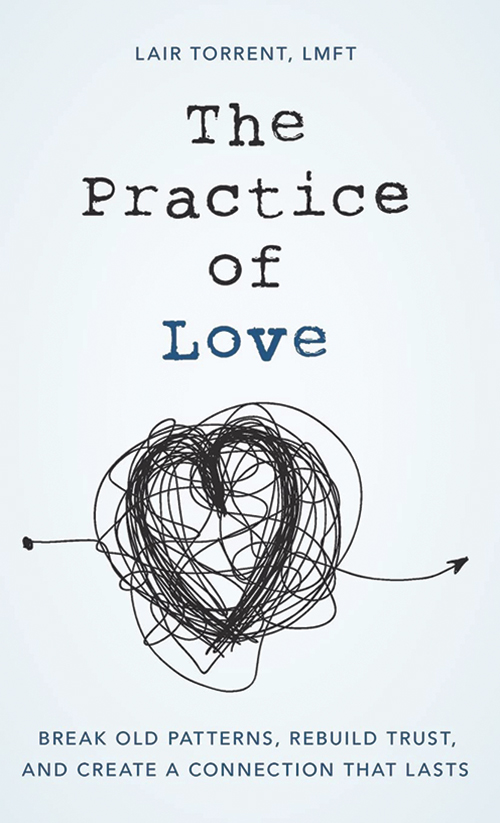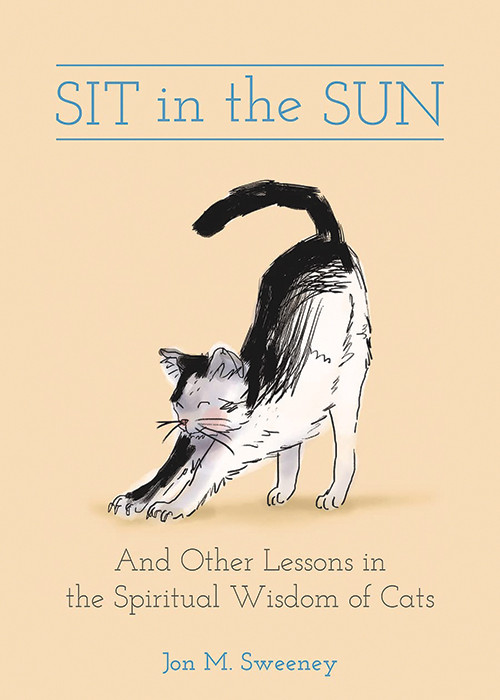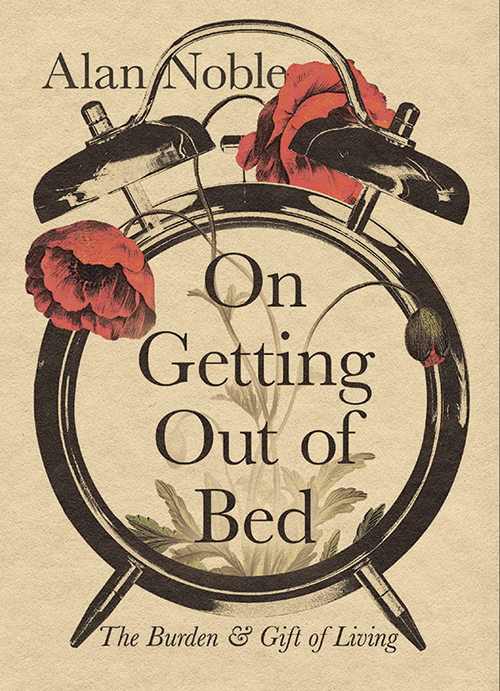
The Practice of Love; Sit in the Sun; AND On Getting Out of Bed
Reviewed by Carl Blumenthal
September 1, 2023
Carl Blumenthal
By Lair Torrent. Rowman & Littlefield, 2022. 280 pages. $34/hardcover; $32/eBook.

Sit in the Sun: And Other Lessons in the Spiritual Wisdom of Cats
By Jon M. Sweeney. Broadleaf Books, 2023. 216 pages. $24.99/hardcover; $22.99/eBook.

On Getting Out of Bed: The Burden and Gift of Living
By Alan Noble. InterVarsity Press, 2023. 120 pages. $20/hardcover; $19.99/eBook.
Love comes in many sizes and forms. In these books about couples, cats, and Christ, the authors employ mindfulness, the sayings of the saints, and the mystery of the Incarnation, respectively, to heal the wounds we inflict on our romantic partners, reflect the wisdom embodied in our feline companions, and transcend the suffering of mental anguish inspired by Jesus’s sacrifice on the cross.
All three writers help us realize that no (wo)man is an island and love is a two-way street. In other words, we can never realize our full potential as human beings without recognizing our essential social, fellow-creature, and spiritual natures.
In The Practice of Love, Lair Torrent explains the exercises he uses to counsel straight and gay couples in crisis. Mindfulness and meditation are the foundations of his practice because they break the tit-for-tat cycle of failing interactions. This allows the partners to identify the ungrounded parts of themselves—the wounded child, defender, and inner critic—that are short-circuiting their relationship.
These repressed parts are among the characters in the narratives we tell ourselves when explaining why we have fallen out of love. Torrent helps his clients understand how they can change their story lines by choosing mindfully to love again, including how personal responsibility and the language of love are one and the same.
Among the exercises are “The Three-to-Five-Minute Mindful Pause, Naming, and Noting,” “Cultivating the Wise Self/the Healthy Self/the Witness,” “Gratitude for Your Partner Journal,” “Re-authoring and Choosing,” and “Apologizing Well.” Time and again Torrent presents neurological evidence that what might seem like hokey practices when repeated often enough rewire the brain so we can replace old unhealthy habits with new healthy ones. Although he cites plenty of practitioners in the field of couples counseling and family therapy, his style is down-to-earth, even breezy.
My wife and I are in our 70s. Reading this book and practicing its exercises have made us realize that old cats can learn new tricks for taking care of each other.
And speaking of couples, whether human or feline, Jon M. Sweeney is a Catholic lay leader married to a female rabbi. He shares 17 spiritual lessons in Sit in the Sun that he learned from their cats, Martin (Luther King Jr.) and Rosa (Parks), siblings born at the beginning of the COVID pandemic. Among these lessons are “Surrender to Relax,” “Find the Love inside You,” “Play Joyfully,” “Voice Your Opinion,” “Wake Up,” “Sit Your Ground,” “Refuse to Be Tamed,” and “Pounce Frequently.” After each lesson is an exercise to practice what you have learned.
Sweeney mixes anecdotes about his cats and their interactions with him and his family with his own spiritual practices and the sayings of some of my favorite illuminates: Teresa of Avila, Hildegard of Bingen, Meister Eckhart, Pierre Teilhard de Chardin, Thich Nhat Hanh, Abraham Joshua Heschel, and Anne Lamott. The illustrations of his cats—singly, as a pair, and with his family members—demonstrate that cuteness is a spiritual quality.
To say that cultivating a spiritual connection with your cat(s) requires mindfulness is an understatement. My wife and I have sheltered ten felines from the streets of Brooklyn during our 28-year marriage. They are the children we never wanted and the spirits made flesh that keep us alive. That our cats are expressions of pure love is equally obvious. As Sweeney writes, “My cats have always—like great trees, but even better, because you can hear their purring—offered a kind of steadiness and presence without a lot of talk.”
Whereas Torrent and Sweeney are not shy about sharing their personal struggles and real-life interactions with people and pets, Alan Noble in On Getting Out of Bed is more reticent about his psychological history, saying, “My burdens are neither private nor public.” Either way it’s obvious that his personal experiences illuminate everything he says. (At one point, he mentions a day when his anxiety and depression kept him in bed to the detriment of his children.)
Currently a professor of English at Oklahoma Baptist University in Shawnee, Okla., Noble has also worked as a writer and editor for various Christian publications. In Getting Out of Bed, he indicts our feel-good society for not recognizing the challenges of those with mental illness. Yet he also questions psychiatry for pathologizing human suffering or “mental anguish.” That the natural condition of prolonged mourning now has the diagnosis of “complicated grief” is one example. Still, as a church-going individual (he attends a Presbyterian church in Shawnee) who has experienced psychiatric symptoms, he makes a distinction between those who need mental health counseling and those for whom spiritual guidance is appropriate.
In the first three of eight chapters, the author plays on these tensions to the extent that he reminded me of Samuel Beckett’s Waiting for Godot and Albert Camus’s The Myth of Sisyphus, in which the latter states, “There is but one truly serious philosophical problem, and that is suicide. Judging whether life is or is not worth living,” and concludes that “the meaning of life is the most urgent of questions.” The whole premise of Noble’s book is to examine this crucial question: “Why get out of bed? Or, more bluntly, why live?” It’s one that’s nearly killed me more than once in my decades of living with bipolar disorder.
Whereas Beckett and Camus rejected religion as an answer, Noble quotes in epigraphs texts that have religious undertones, such as the post-apocalyptic novel The Road by Cormac McCarthy: “What’s the bravest thing you ever did? . . . Getting up this morning”; and the Pentecostal fire poem “Little Gidding” by T. S. Eliot: “any action is a step to the block,” meaning judgment day before the executioner.
In the final five chapters, Noble does not so much resolve the tensions as use the mystery or paradox of faith in God and Christ as a way of suspending them. Here the Golden Rule is paramount: Not only is suicide not an option, but our legacy as human beings is not what we do for ourselves but what we do for others. Continuing with his case against suicide, Noble quotes from Radiohead’s “Exit Music (for a Film)”: “Breathe, keep breathing. / Don’t lose your nerve.” Finally, he writes:
We all bear witness to the goodness of this existence God has given us. That witness has the power to move mountains and broken forty-year-old men out of bed. And it’s beautiful, even while we suffer, it’s beautiful. Because it’s grace. Dear God, it’s your grace.
Carl Blumenthal is a member of Brooklyn (N.Y.) Meeting and the author of A Quaker’s Guide to the Cosmos: a collection of his writings for Quaker publications, including Friends Journal, New York Yearly Meeting’s Spark, and Brooklyn Meeting’s newsletter.



Comments on Friendsjournal.org may be used in the Forum of the print magazine and may be edited for length and clarity.